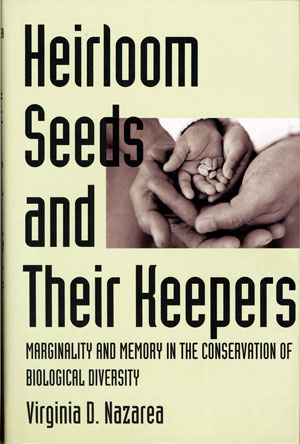Farmers and gardeners have long appreciated a wide variety of plants, but diversity too often has been surrendered to monocultures, predisposing modern agriculture to uniformity, and consequently, vulnerability.
As scientists grapple with the erosion of genetic diversity of crops and their wild relatives, some farmers and gardeners still propagate and pass on folk varieties and heirloom seeds.
In Heirloom Seeds and Their Keepers: Marginality and Memory in the Conservation of Biological Diversity, Virginia Nazarea, UGA professor of anthropology, focuses on the role of these seed savers in diversity, examines the framework of scientific conservation and argues for the merits of everyday conservation.
Whether considering small-scale rice and sweet potato farmers in the Philippines or participants in the Southern Seed Legacy and Introduced Germplasm from Vietnam in the American South, Nazarea explores roads certainly less recognized in the conservation of biodiversity. Through characters and stories that offer a wealth of insights about human nature and society, Heirloom Seeds and Their Keepers offers a much-needed, scientifically researched perspective on the contribution of seed saving that illustrates its critical significance to both cultural knowledge and crop diversity and honors conservation as a way of life.


